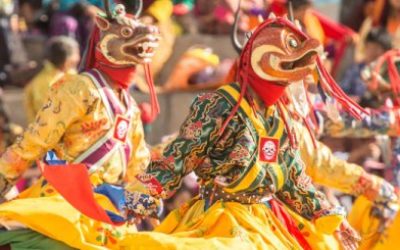Bhutan is a small country in the Himalayas between the Tibet Autonomous Region of China and India.
Besides the stunning natural scenery, the enduring image of the country for most visitors is the strong sense of culture and tradition that binds the kingdom and clearly distinguishes it from its larger neighbors. Bhutan is the only Vajrayana Buddhist nation in the world, and the profound teachings of this tradition remain well preserved and exert a strong influence in all aspects of life. Due to its pristine environment and harmonious society, the tiny Kingdom of Bhutan has been called “The Last Shangrila.”
Bhutan is a unique country both culturally and environmentally. Perched high in the Himalayas, it is the world’s last remaining Buddhist Kingdom. It has developed the philosophy of Gross National Happiness; where development is measured using a holistic approach of well-being, not just based on gross domestic product.
It is still termed as a third world country with subsistence farming practiced in much of the country. In broad terms the land is fertile and the population small. In addition, the current generation receives free education, and all citizens have access to free, though rudimentary, medical care. The sale of tobacco products is banned and smoking in public areas is a fineable offense.
Major sources of income for the kingdom are tourism, hydroelectric power and agriculture.
While traditional culture has been very well preserved, the opening of the country to TV and internet in 1999 has had a major effect, and modern-day culture is mostly centred on bars and snooker halls. As a result, there is very little or no evidence of quality contemporary art, theatre or music.

 Fixed Departure
Fixed Departure
